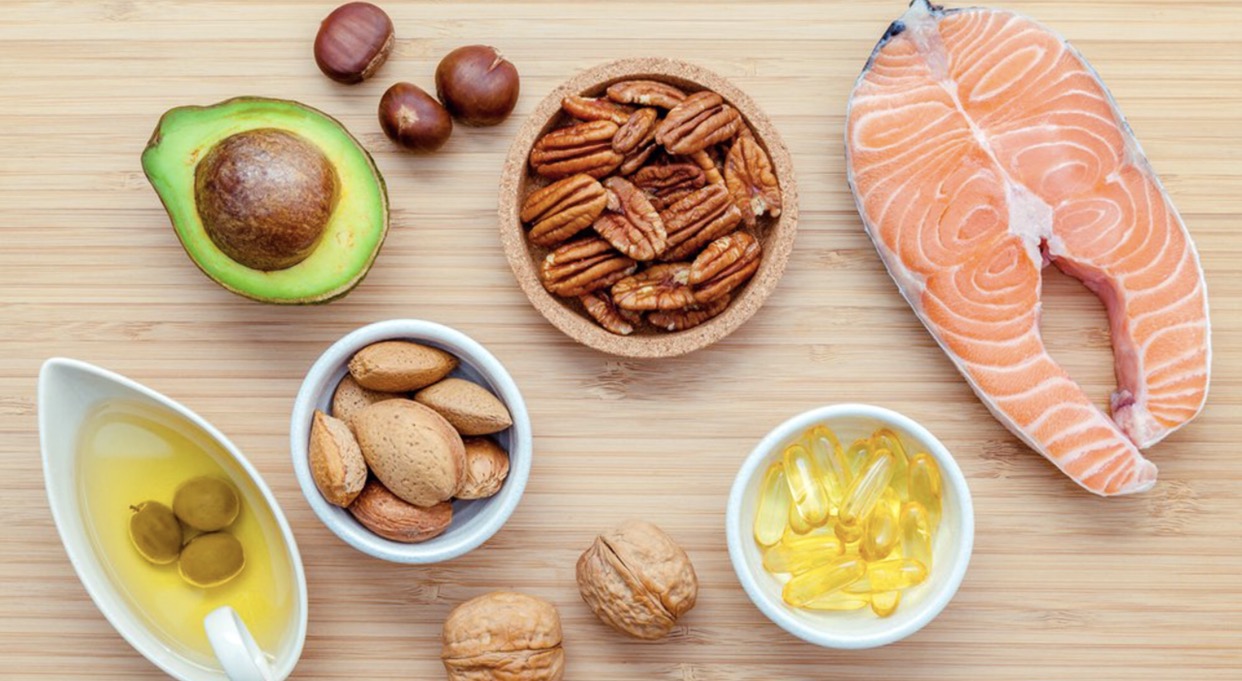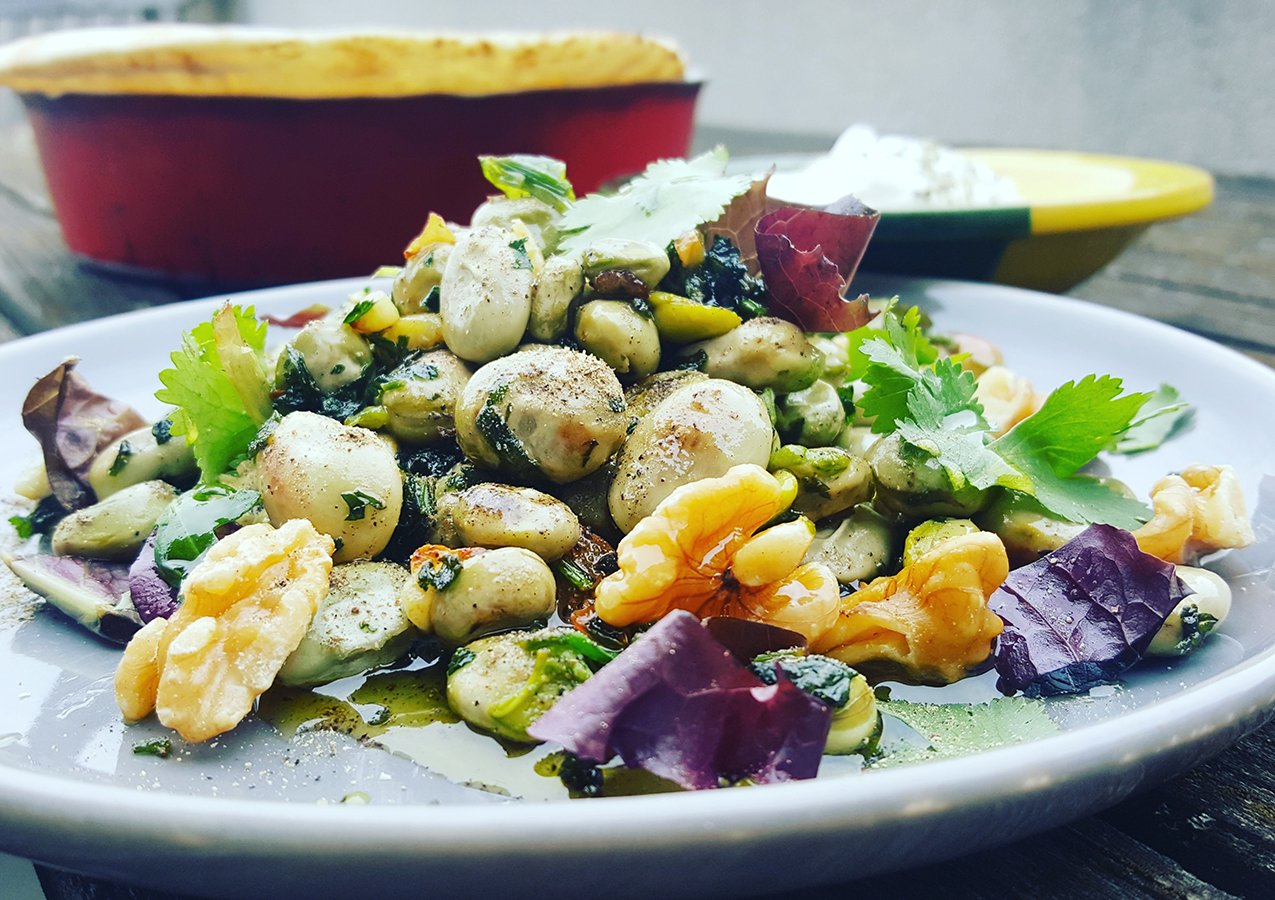Mazola, canola, corn, coconut, soy oh my! Why in the world is there so much conflicting evidence on healthy oils (healthy fats) these days? The American Heart Association, Dr. Mercola, Dave Asprey…who do you trust? There’s a few things we know for sure: Fat is a major source of energy and supports balanced hormones. It’s a catalyst for absorbing certain vitamins and minerals. Fat is also critical to building cell membranes, the important lining of each cell which promotes homeostasis and protects the cells. We need fats for many bodily processes. Below is our guide to making informed healthy choices for you and your family.
There are four types of fats: saturated, monounsaturated, trans and polyunsaturated.
Saturated Fats
Interestingly, saturated fats have been vilified for the last 40 years but under the dietary guidelines to restrict saturated fats, chronic illness has risen rather than declined. Weston A Price Foundation sums it up:
“In the decades following the release of the dietary guidelines, Americans followed suit, reducing their intake of animal fats and largely replacing them with grains, sugars and industrially processed vegetable oils. Yet, despite adherence to these supposedly ‘healthy’ guidelines, U.S. public health declined.”
There are many conflicting viewpoints on saturated fats. We recommend these healthy choices:
- Coconut oil for its many health benefits
- MCT oil
- Raw butter
For people who eat meat: consume grass fed meat only. Processed meats like bacon, hot dogs, sausages, and lunch meats contain saturated fats and should not to be eaten as they are class 1 carcinogens.
Monounsaturated fats
Monounsaturated fats protect the heart and support insulin sensitivity, fat storage, weight loss, and healthy energy levels. Healthy choices include:
- Avocado
- Macadamia nuts
- Olives and olive oil
Less healthy choices:
- Canola oil (unless it’s organic, canola oil is made from GMOs and is highly processed and refined)
- Peanuts – they tend to be high in molds, which produce aflatoxin, a toxin known to cause cancer. Peanuts also cause inflammation and are highly allergenic.
Polyunsaturated fats
Polyunsaturated fats include Omega 3 and Omega 6 fats. Omega 3’s reduce inflammation, support healthy hormone levels and cell membranes. Omega 6 fatty acids are important to support healthy brain and muscle functions but, on the downside, they promote inflammation in the body.
We only need a small amount of Omega 6 fatty acids in our diet yet the standafrd American diet is filled with them (e.g., most baked goods, packaged foods like cookies and crackers, chips, french fries, breads, and snacks). Corn, soybean, safflower, cottonseed, grapeseed and sunflower oils are all high in Omega 6’s and are not stable. This means any food that’s fried, baked, or microwaved using these oils will oxidize and create an inflammatory response in the body.
What to do?
Eat more Omega 3 fats like flax, clean salmon and less of Omega 6 fats. We recommend you stay away from soy and corn oil – period. Why? 95% of soy and corn oil is derived from GMO seeds and in numerous studies has shown to increase body fat and inflammation. It’s also made using dangerous chemical solvents.

Dave Asprey’s viewpoint on polyunsaturated fats is on point:
“PUFAs [polyunsaturated fatty acids] don’t protect you from coronary heart disease, cardiovascular disease, artherosclerosis, stroke, or mortality, like the AHA claims. In fact, eating less saturated fat and more linoleic acid increased deaths from coronary heart disease, cardiovascular disease, and deaths from all causes. That’s not surprising. We already know that PUFAs cause inflammation and the inflammatory diseases that go along with it… vegetable fats cause damage to your mitochondria (the powerhouses of your cells), which lowers your ability to make energy, which leads to inflammation, which leads to every degenerative disease we know of.”
Trans Fats
This is the worst type of fat. Per Harvard’s The Nutrition Source:
“It is a byproduct of a process called hydrogenation that is used to turn healthy oils into solids and to prevent them from becoming rancid. When vegetable oil is heated in the presence of hydrogen and a heavy-metal catalyst such as palladium, hydrogen atoms are added to the carbon chain. This turns oils into solids. It also makes healthy vegetable oils more like not-so-healthy saturated fats. On food label ingredient lists, this manufactured substance is typically listed as ‘partially hydrogenated oil.'”
Recently the American Heart Association endorsed eating more corn and soy oil. We found this shocking as these oils are almost always made from GMO corn and soy. These Roundup ready crops are bred to withstand Roundup herbicide which means these crops can be drenched in this herbicide that will kill all weeds and plant around it. Roundup/Glyphosate has been shown to cause cancer and can lead to leaky gut. For more info on Roundup click here
Corn and soy oils are high in Omega 6 which most Americans already get enough in their diets. Too much Omega 6 leads to an inflammatory response in the body. This kind of dietary inflammation is the root cause of most chronic diseases in the US including, heart disease, the number one killer of Americans. When you dig a little deeper into who funds the AHA, it’s no surprise to find the Canola Oil Council and big pharma who make huge profits from statins. Their guidance is “why eat healthy oils when you can just take statins?” It’s a sad day when you can’t trust the American Heart Association. The fact that they have their heart healthy stamp of approval on high-glycemic GMO cereals and snacks when high glycemic foods promote unhealthy inflammation makes it difficult to trust the integrity of this organization. To dig a little deeper on the studies they used for their conclusions, check out this recent article by Gary Taubes, an investigative science and health journalist.
Quite simply, we believe the best choice for your health is to incorporate clean healthy fats and the least processed fats. And always organic.
Our Top Healthy Fat Picks
- Cold pressed flax oil (never heated)
- Coconut oil (can safely heat). We use coconut oil in many of our desserts like our Raw Cacao Vegan Mousse and Tiramisu.
- MCT oil
- Olive oil
- Raw butter (grass fed)
- Ghee better for high heat cooking
- Avocado
- Raw cacao butter
- Grass fed pastured meats, dairy and eggs
- Raw nuts
- Sustainably sourced salmon, sardines, krill oil

